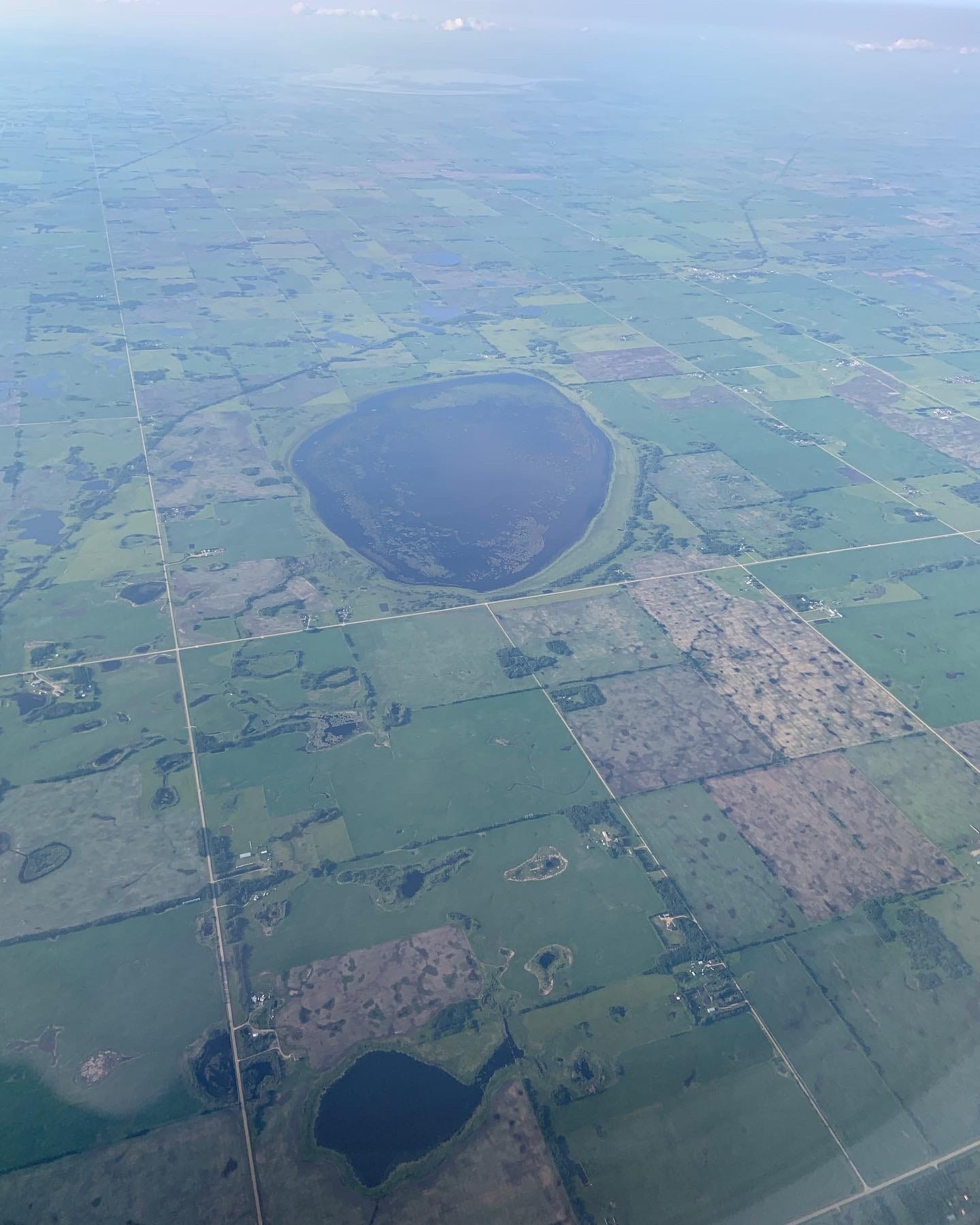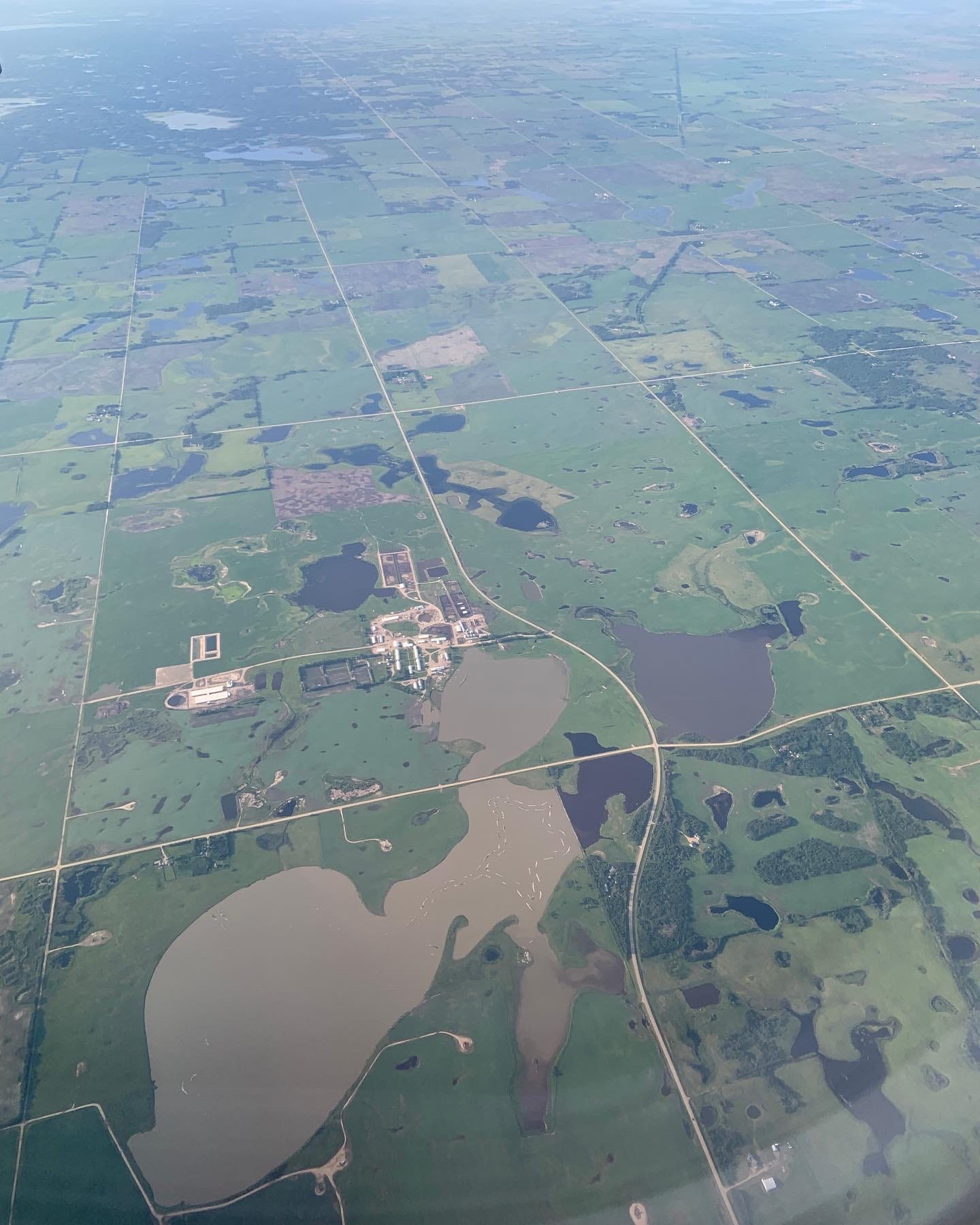I think of Fast Commute as my “Ontario book.” Much of it is exists along the 401, on the fringes of the twin cities of Kitchener-Waterloo, beside the river in London, ON, surrounded by grey glass in Toronto, among the “weeds” of my yard in Peterborough, beside the fire in Ameliasburgh. Though the book is calling to the west from Ontario, there are a few pages that have me going physically back: I walk between the oil refinery and the North Saskatchewan River on the eastern edge of Edmonton, I drive the Yellowhead highway in Alberta and Saskatchewan, I wander around the town of Battleford, and, though I don’t mention it by name, I return to the grave of the eight nêhiyaw men there, the grave that Settler Education tries to come to terms with. At one time, I thought I would start Fast Commute there, beside the grave of the men who made a last stand in 1885 against the world we live in now and were hanged for it, and then I’d widen out, ripples-on-a-lake-like. Instead, I started on the other side of the river, not quite three decades later, with a postcard depiction of a street in North Battleford celebrating its inception as a city, its population at that time probably a few thousand settlers. I started the poem not on any land or in any physical place, but within the pages of another book.
A couple of weeks ago, I went back home, to Alberta. My last day there had been the third day of 2020. During the past two-and-a-half years—my longest stretch away—I’ve been at work on a new bunch of poems, and I’ve been noticing how heavily they spring from research, reading, thinking, looking at pictures and documents and heirlooms. My feet aren’t often, aren’t yet on any ground. This has been the pandemic’s effect.
One thread I’ve been following is the stories of all my great-grandparents’ arrivals to the prairies to homestead, and what’s to be known about what they left, why they left. First to arrive were the Grahams, who came from Campbeltown, Scotland, and landed in Qu’Appelle (in what would soon become Saskatchewan) in 1903. They spent the winter in a tent (or tents) there and in the spring travelled north and became the “first to arrive” in the Last Mountain Valley area to homestead, so the family story goes. It’s thought that my great-grandmother, Elizabeth, inherited money that wound up sailing herself and her husband and most of his family—nine people in all—across.
The last of my great-grandparents to come to this continent was my baba, Paranka Charchun, later Jennie Bykewich, who in 1927, at the age of nineteen, left her village, Nemyliv, in western Ukraine and got on a boat to work on her uncle Prokop’s farm near Angle Lake, in east-central Alberta. He had sent a letter home saying “Is anybody coming?” and Paranka wrote back: “Send me the papers and I’ll come.” She left a boyfriend at home, the idea being she’d go over, work for a while, make some money, and then return, but she then met Joe Bykewich.
Story goes Elizabeth was deeply homesick all her life, but she didn’t set foot off the farm, let alone the continent.
Jennie returned to her village, illegally, for a single afternoon, forty-seven years later, at the age of sixty-five. She said it was as though nothing had changed, though at first she didn’t recognize her siblings. She kept repeating to herself the words “I made the right decision. I made the right decision.”
Here’s how Lewis Hyde describes the beginnings of his book A Primer for Forgetting:
Many years ago, reading about the old oral cultures where wisdom and history lived not in books but on the tongue, I found my curiosity aroused by one brief remark. “Oral societies,” I read, keep themselves “in equilibrium...by sloughing off memories which no longer have present relevance.” My interest at the time was in memory itself, in the valuable ways that persons and cultures keep the past in mind, but here was a contrary note, one that clearly stirred my own contrary spirit, for I began to keep scrapbooks of other cases in which letting go of the past proves to be at least as useful as preserving it.
Those scrapbooks, and the book that grew out of them, is what Hyde calls “an experiment in both thought and form.” The form: the scrapbooks themselves, collections of quotes, stories, and images grouping themselves around four subjects: myth, self, nation, and creation. Each of the four sections begins with a page of aphorisms, many of them memorable:
“Memory and oblivion, we call that imagination.”
Changes of identity call for large doses of forgetfulness.
You may visit a grave but you do not have to.
The Unforgotten, destroyer of nations.
Writing damages forgetfulness.
In the “Myth” section, Hyde writes a bit about genealogy. There’s a page he titles “Grandma Hyde Versus Foucault”:
“The analysis of descent permits the dissociation of the self,” rather than its unification, writes Michel Foucault. The truth about who you are lies not at the root of the tree but rather out at the tips of the branches, the thousand tips.
In 1937, my grandmother published The Descendents of Andrew Hyde, himself the “sixth in descent from William Hyde of Norwich, Connecticut,” this William Hyde being born in England, probably in 1610, and coming to the colonies in 1633.
Twelve generations separate me from William Hyde. I have two parents, four grandparents, eight great-grandparents….My forebears from 1610 may number 2,048. Grandmother’s book remembers William Hyde but forgets 2,047 other ancestors, including William’s wife.
To practice subversive genealogy means to forget the idealism of a singular forefather and remember these thousands. With that remembrance you must multiply the sense of who you are, multiply it until it disappears. Even Foucault studies the self to forget the self.
A family of magpies has taken up residence in my parents’ backyard. Three young ones squawking at me whenever I sat out on the deck or picked lettuce or watered the pots. I was a stranger to them, an invader, a possible threat. I was so glad they were there. It had been two-and-a-half years since I had seen a magpie.
Next month, it will be twenty years since I picked up and moved to the Big Smoke, seeking adventure. Besides a few years in Victoria to attend the writing program at the university, I’ve been in Ontario all this time, bouncing around cities in the southern part of the province. I am, perhaps, slowly, becoming Ontarian. At this point, Ontario would never totally claim me, nor would Alberta anymore, though of course, “Ontarian” means nothing, just as “Albertan” means nothing. I sense myself existing in an ungrounded in-between.
But that’s not right. What I’m coming to understand is that I am a neighbour to the Great Lakes. That I have become a student of water.




